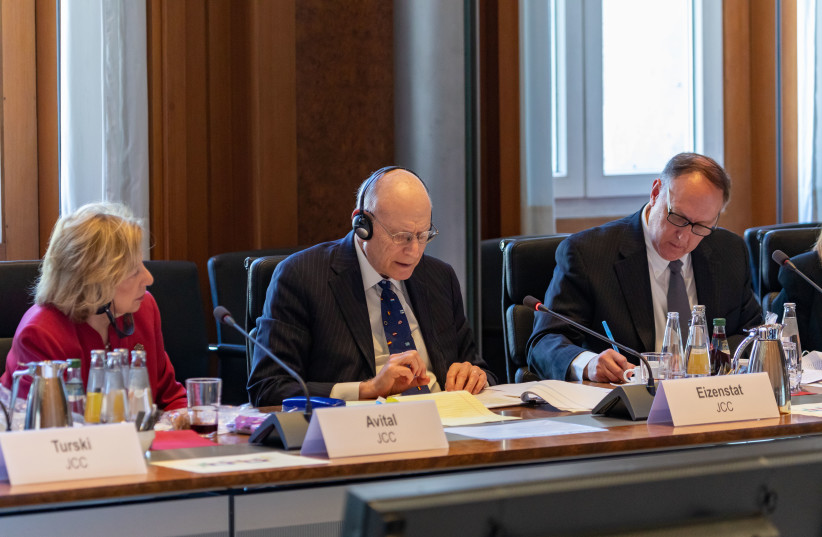In a momentous announcement, the Conference on Jewish Material Claims Against Germany (Claims Conference) revealed on Thursday the outcomes of its recent negotiations with the German Federal Finance Ministry.
The negotiations have resulted in an unprecedented commitment of $1.4 billion for Holocaust survivors worldwide. According to the Claims Conference, this substantial compensation and social welfare services package highlight the German government's unwavering dedication to addressing the needs of aging survivors.
The agreement includes increased funding for home care services, extended one-time payments and a renewed focus on Holocaust education to ensure that the memory of the Holocaust endures for future generations.
Unprecedented financial support
The German government has allocated $1.4 billion to provide direct compensation and social welfare services for Holocaust survivors globally. The Claims Conference said in a statement that this significant commitment demonstrates a recognition of the “immense suffering,” endured by survivors and a determination to address their ongoing needs.
Key outcomes of the negotiations:
- Home care services: An additional $105.2 million has been allocated to home care programs, bringing the total funding to $888.9 million. This substantial increase will enable survivors to access vital in-home services, including medical assistance, transportation and socialization.
- Extended one-time payments: Over 128,000 Holocaust survivors globally will receive continued one-time payments until 2027. The amount for each additional year is set at €1,250 for 2024, €1,300 for 2025, €1,350 for 2026, and €1,400 for 2027.
- Holocaust education funding: Funding for Holocaust education programs has been extended for two more years, with an annual increase of €3 million. This investment ensures that future generations have access to cutting-edge educational resources to learn about the Holocaust.
- Total Compensation Projection: The projected total amount of direct compensation, including one-time payments and monthly pensions, is estimated to be $535 million for the year 2024.

“Every year these negotiations become more and more critical as this last generation of Holocaust survivors age and their needs increase,” said Greg Schneider, executive vice president of the Claims Conference said in the statement. “Being able to ensure direct payments to survivors in addition to the expansions to the social welfare services we are able to fund is essential in making sure every Holocaust survivor is taken care of for as long as it is required, addressing each individual need,” Schneider concluded.
Ambassador Stuart Eizenstat, special negotiator for the Claims Conference Negotiations Delegation added, “I am inspired that, as shown by the extraordinary results we have achieved this year, so many decades after the end of World War II, far from waning, the German government and its people continue to feel a deep responsibility to provide additional care to Holocaust survivors.
It has been nearly 80 years since the liberation of Auschwitz and the need to negotiate for survivor care and compensation is more urgent than ever. Every negotiation is a near-last opportunity to ensure survivors of the Holocaust are receiving some measure of justice and a chance at the dignity that was taken from them in their youth. It will never be enough until the last survivor has taken their last breath.”
Recent global Holocaust Knowledge and Awareness Surveys indicate that knowledge of the Holocaust is fading. While surveys in the US, Canada, Austria, France, the UK and The Netherlands show a decline in knowledge of key facts about the Holocaust across all populations, they also indicate a strong desire to keep Holocaust education in schools so that something like the Holocaust does not happen again.
The Claims Conference explained in their statement that “one of the goals from the ongoing negotiations with the German government is to improve funding for education programs that will ensure future generations have access to cutting-edge, innovative Holocaust education programs.”
